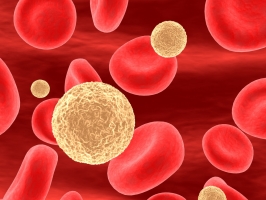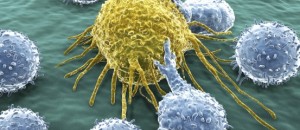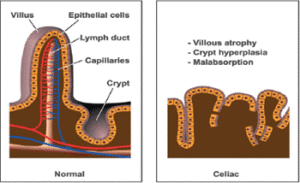If you are reading this, then you probably chose to eat gluten free from now on.
This choice was forced on you in case you were diagnosed with coeliac disease or gluten sensitivity or was a life style decision based on the numerous articles that promote the so called gluten free diet.
First of all, I want to disclose that I am a dentist by formation and our daughter has coeliac disease, so I will speak only about our experience in a serious way, because the gluten intolerance and sensibility is a serious matter.
To prove that we should talk a little about:
The Coeliac Disease
Coeliac disease is a lifelong autoimmune disease. When we researched this condition after our daughter’s diagnosis, I realize that not all the people who are writing about coeliac disease understand exactly what happens when you have an autoimmune disease. I will try to explain what an autoimmune disorder is in a very simple way:
Our immune system is not an organ, but a series of cells and processesworking together to fight off foreign cells in our blood stream. The individual soldiers in this battle against foreign invaders are the white blood cells.
The foreign invaders in our body are called Antigens, they are protein molecules which can be part of a virus or a bacteria that is potentially corruptive to our body. Each antigen has a unique identity based on the sequence of amino acids which makes up the protein. Their identities are comparable to people’s fingertips.
When a foreign invader is detected, these white blood cells team up into groups to create a customized defense against the invader.
Each time a new antigen is encountered, a new specialized defense mechanism is created. The results are then re-used for future captures of antigens of the same type.
Subsequent attacks on antigens with existing defensive mechanisms mean that they can be destroyed faster and less painful. This is the basis for Immunization: introducing a tiny dose of a foreign virus, so our body will create the appropriate response and will know how to deal with them next time.
An Autoimune Disease appears when our soldiers cannot distinguish between invader proteins and our body’s own proteins. The actual cause of confusion is still unknown, and the process is extremely complex.
This tiny fingers in the lining of the small intestine are called villi. The villi are the workhorses of our digestive system. This is the place where most of our nutrients, vitamins, and minerals are absorbed and sent happily into the bloodstream to fuel the other parts of our body.
That is, unless we have celiac disease.
When people with celiac disease eat foods containing gluten, the immune system reacts as if the gluten is an infection and rushes to attack it.
As this battle rages, the villi are damaged, inflamed, and worn away. Whether the patient has symptoms or not, this takes place continually as long as gluten is eaten. The damage impairs the ability to absorb nutrients.
When the gut is damaged, no matter how much food is eaten, the patient becomes malnourished and seriously deficient in many vitamins, including B 12, B 6, and D, as well as iron, calcium, folic acid, niacin, copper, riboflavin, carnitine, and zinc.
Only 30 percent of adult celiac patients have textbook symptoms, such as bloating, gas, diarrhea, weight loss, and digestive upset. That means a full 70 percent have nonspecific symptoms or no symptoms at all. Often the diagnosis is made when the patient has another ailment (such as anemia, infertility, eczema, or osteoporosis) that cannot be explained and doesn’t respond to normal treatment.
Although doctor awareness and diagnostic tools are much better than they were even five years ago, it is still a difficult disease to diagnose, as it masquerades in a host of other conditions from the very subtle, such as acid reflux, to the more specific, such as osteoporosis, tooth enamel defects, central and peripheral nervous system disease, pancreatic disease, internal hemorrhaging, organ disorders (gall bladder, liver, and spleen), and gynecological disorders, including infertility.
Untreated celiac disease has also been linked to an increased risk of certain types of cancer, particularly intestinal lymphoma and bowel cancer, and recent studies have shown an increase in hip fractures, too. In total, celiac disease is associated with approximately two hundred symptoms, according to the University of Chicago Celiac Disease Center.
No matter what kinds of symptoms or severity of symptoms you experience when you eat gluten, untreated celiac disease can be life-threatening.
Here are some of the most common symptoms:
- Frequent abdominal bloating and pain
- Chronic diarrhea or constipation
- Vomiting
- Heartburn
- Weight loss
- Pale, foul-smelling stool
- Iron-deficiency anemia that does not respond to iron therapy
- Fatigue
- Failure to thrive or short stature
- Delayed puberty
- Pain in the joints
- Tingling or numbness in the legs (neuropathy)
- Pale sores inside the mouth
- A skin rash called dermatitis herpetiformis
- Tooth discoloration or loss of enamel
- Unexplained infertility or recurrent miscarriage
- Osteopenia (mild) or osteoporosis (more serious bone density problem)
- Peripheral neuropathy (nerve damage)
- Mental health disorders, such as anxiety or depression
Thankfully, there is a cure for the symptoms and intestinal damage or skin irritation associated with celiac disease, but not the condition itself.
The only “cure” is the permanent removal of gluten from the diet so that the small intestine can recover and return to normal functioning.
Early diagnosis of celiac disease is critical and the gluten-free diet must be adopted immediately to eliminate the symptoms and help prevent further complications associated with the disease.


